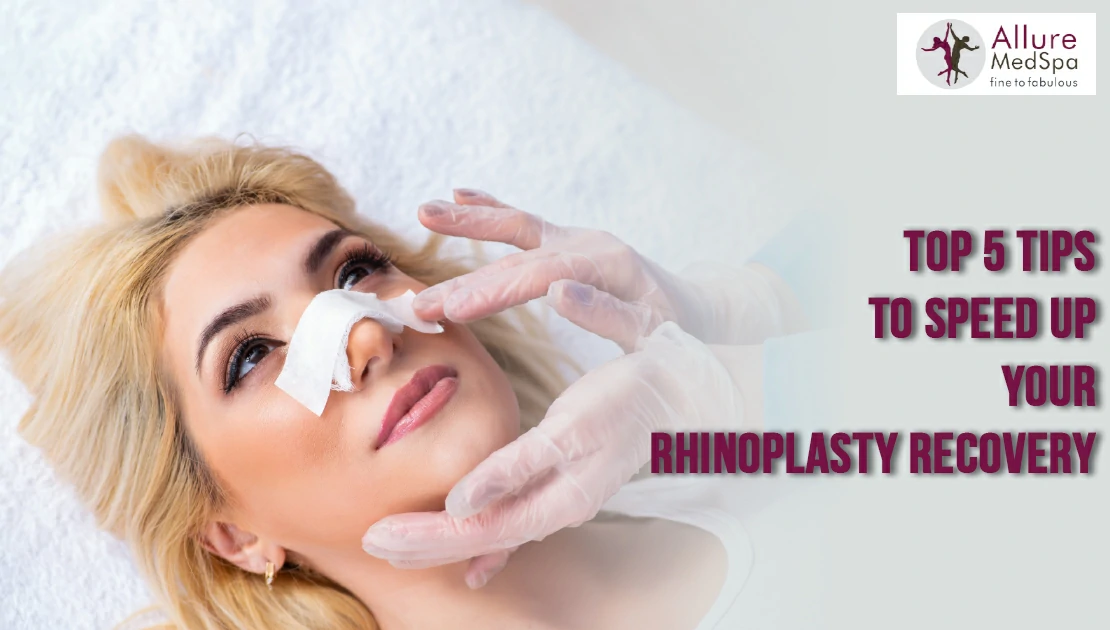Rhinoplasty surgery, if you have ever heard the term or simply a nose job is a type of cosmetic surgery related to the nose. Your recovery is important as some time is needed to heal completely. But it is necessary that you don’t rush things and it is recommended that you adopt some measures to help hasten your recovery which we have mentioned in this article.
1. Follow your doctor’s instructions
Your cosmetic surgeon will give you instructions about what things to do and what not post your rhinoplasty surgery. You should follow the instructions given very thoroughly as neglecting them will surely prolong your recovery time and healing will get delayed.
2. Take follow-up sessions seriously
Follow-up sessions are necessary as they allow your doctor to see if your recovery is going well or not. They can also identify potential problems in the recovery phase which can be handled then and there before they snowball into bigger issues. So it is becomes extremely necessary that you visit your doctor regularly on those follow-up sessions so that your recovery phase goes on smoothly.
Age and Rhinoplasty: How the Procedure Changes with Different Age Groups
Rhinoplasty Can Treat These Five Conditions
3. Diet
You should have a balanced and nutritious diet post your rhinoplasty surgery. This helps in your recovery phase, however, there are things you should keep an eye on which are firstly salt which if taken in excess can trap fluid in your body thus aggravating swelling and delaying your recovery. Try to eat low-sodium foods such as fresh or frozen vegetables, yogurt, beans, nuts, etc., and avoid instant soups, noodles, and canned vegetables, as well as ready-to-eat meals, pickles, fast foods as these, contain a colossal amount of sodium. The second thing is spices and spicy food such as chili powder and preparations having it as the ingredient which irritate your nasal passages and increase the chances of complications.
4. General care
- It is necessary that you take at least seven days’ leave from your work post-surgery as this is the time you should get plenty of rest and relax or spend time with friends and family at the comfort of your home which will help you recover quickly.
- You should avoid exercise for about 3 weeks.
- Take care so that local injury to the nose and surrounding area is avoided. After 72 hours swelling may persist on the cheeks and eyes so you can apply a cold compress in the form of ice pack, the cold emanating from the ice pack shrinks your blood vessels thus reducing your swelling.
- Lie down in propped-up position. Reduces swelling and bruising. While sleeping keeps heavy cushions on both your sides so that you don’t end up hurting your nose or you can even use a recliner for the foremost six weeks.
- Avoid sunlight during your rhinoplasty surgery your nose and the area surrounding it are inflamed, thus direct sunlight can cause sunburn, and pigmentation chances can increase, you can wear a broad-brimmed hat or do whatever you can to stay under shadows.
- You should not wear any glasses whether reading or sunglasses which may put unwanted pressure on your nose bridge thus causing problems such as indentation or swelling, bruising, etc…
- It is recommended that you deter the natural urge to blow your nose if you feel ‘stuffed up’ as blowing increases the intra-nasal pressure and may cause damage to your nose.
5. Pre-operative precautions
The pre-operative precautions are as important as post-operative care as they also decide the latter outcomes. You should stop taking any vitamin supplements and also be in good health. You should disclose any health issues to your cosmetic surgeon such as pre-existing diseases such as diabetes or heart problems etc. You should also keep smoking aside because your cigarette contains tobacco namely nicotine which has the property restricting blood flow to the regions where surgery was done thus interfering with the healing process and delaying your recovery.

